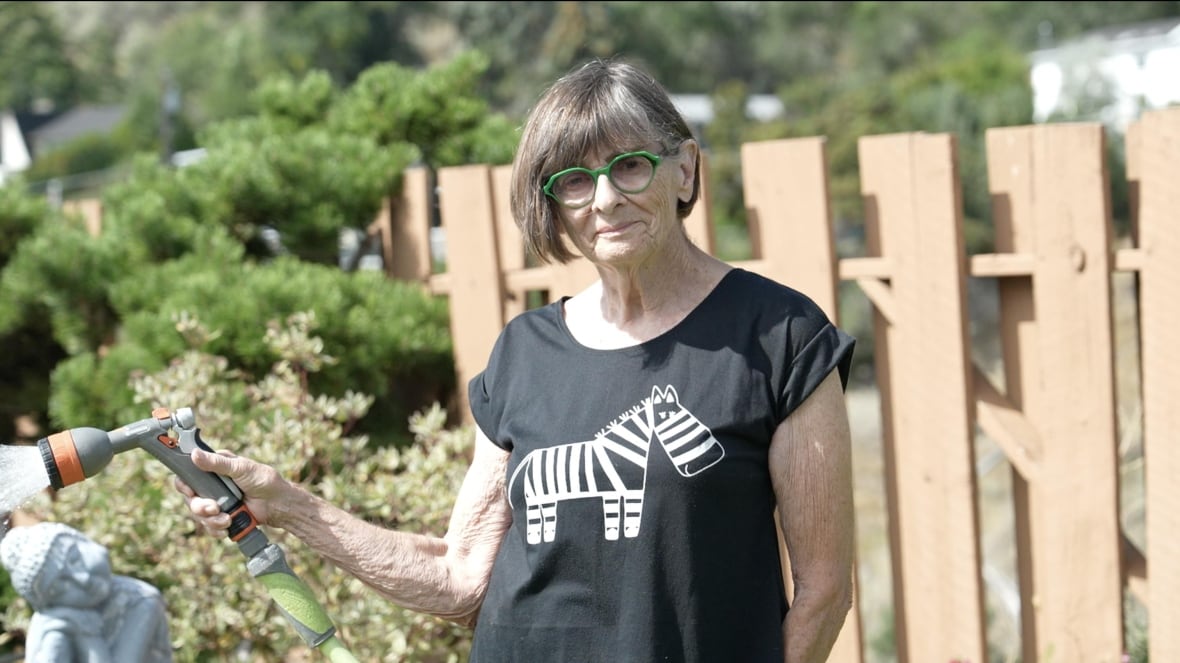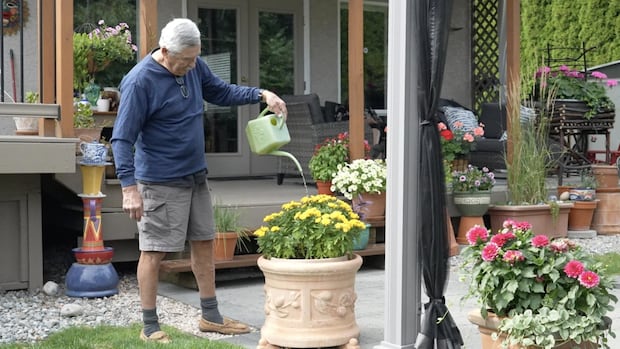Over 200 residents in a rural area northwest of Penticton, B.C., may have to shell out over $1,000 a month just to have water.
The jaw-dropping cost has homeowners that rely on the Sage Mesa Water System stressed out and demanding a more reasonable solution.
Bruce Turnbull has lived in his home for over 40 years.
“I don’t know of any place on this planet that pays $1,200 a month for water, for drinking water. This isn’t agricultural, I’m not raising crops here, I’m just living here. To pay $1,200 a month to get a glass of water doesn’t make sense,” he said.
Last year, the 242 residents of Sage Mesa were notified that they would be on the hook for the $33-million cost of upgrading the waterline. The system does not meet basic water treatment guidelines set out by Interior Health, and is reaching the end of its life with much of the infrastructure over 60 years old.
‘I really don’t want to leave’
Randy Enns, an 80-year-old retiree who has lived in his home for over 50 years said Sage Mesa is a great place to live.
“My lot is very private, I’ve got lovely neighbours, and I really don’t want to leave,” he said.
But he told CBC News that trying to figure out how he is going to make it financially has significantly impacted his health.
“I’m in poor health, I’ve got lots of issues, and now I am very stressed out,” he said.
One of his concerns is suffering a loss in property value if he decides to sell his home.
“For most people like me, it’s your nest egg. If everything else goes wrong and you run out of funds, you’ve got your nest egg and it’s your house and you can sell it. Well this is preventing me from doing that,” he said.
Sharon Plato, an 83-year-old retired nurse living on a pension, said the thought of the water repair cost keeps her up at night.
“It would be devastating to me,” she said. “I would not be able to stay here, I would have to move.”
Most people don’t rate their water bill as one that stresses them out. But for people living in a neighbourhood just outside Penticton, it’s another matter. A privately-owned system is sending people big bills to keep the water flowing. CBC’s Tiffany Goodwein has more on why they’re paying so much and the impact.
The Sage Mesa Water System is privately owned. It pumps water from Okanagan Lake and treats it with chlorine.
In 1990, the province intervened after concerns about financial mismanagement and infrastructure deterioration, and put the system under the control of the provincial water comptroller. The Ministry of Water and Natural Resources told CBC News that it has no role in funding the system.
“At this time, Sage Mesa remains privately owned and managed by the Comptroller of Water Rights. As private companies, private water utilities are responsible for independently maintaining infrastructure and ensuring the continued delivery of water services,” the ministry said in a statement.
‘We need clean water’
Water quality issues continue to plague the system with approximately 60 homes under a permanent boil water advisory.
Plato has an autoimmune condition and has not been able to drink the water for years.
“We need clean water that’s healthy water and something we can afford. We need the province and all the ministers concerned with this situation to act quickly on it,” she said.

Since 2009, the Regional District of the Okanagan-Similkameen (RDOS) has been contracted out by the province to operate and run the system. The regional district said it has been approached by the private owner to take over the Sage Mesa waterline, but it would require a referendum to authorize the $33-million loan needed to cover the cost of repairs.
Voting “yes” would mean that the RDOS could apply for grants through the provincial government, potentially shaving some costs to residents.
A date for the vote to happen has not been set yet.
The regional district said in a statement that staff are being kept informed on provincial discussions on the issue and they continue to advocate on behalf of residents for “the best path forward.”
With so much at stake, Sage Mesa residents are also seeking other alternatives, like connecting to the City of Penticton’s water system.
Penticton Mayor Julius Bloomfield said connecting to the city’s water system isn’t so simple, though.
“It’s a capacity issue, and it is supply and demand, and it is always a consideration when dealing with finite resources like water,” he said.
An information session hosted by the Regional District of the Okanagan-Similkameen will be happening on Sept. 10, as residents continue to push for options that don’t wash out their wallets.
“We are fighting, we are absolutely fighting,” said Turnbull.








